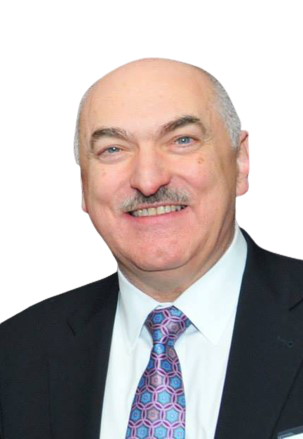Conference Sessions
Keynote Session
Keynote Session 1 — Hai Yang
Title: Smart Mobility Management in the Era of Smart Transportation
Speaker: Hai Yang
Abstract: The current revolutions of sharing, automation and electrification are reshaping the way we travel, with broad implications for future mobility management. While much uncertainty remains about how these disruptive technologies would exactly impact demand for future mobility and enhancement of transportation supply, it is clear that Innovative demand management is equally important as smart supply technology development in solving worsening traffic problems in big cities. In this talk, I will discuss the opportunities and challenges of smart mobility management in the era of smart transportation. Innovative ways of travel demand management are described, including tradable travel credit scheme for road congestion mitigation, revenue-preserving and Pareto-improving strategies for peak-hour transit demand management congestion, and a novel reward scheme integrated with surge pricing in a ride-sourcing market.
Keynote Session 2 — Hani Mahmassani
Title: Operational Strategies for Urban Air Mobility and 4D System Fundamental Diagrams
Speaker: Hani Mahmassani
Abstract: We take urban mobility to the next level by considering shared mobility services offered through automated electric vertical take-off and landing (eVTOL) vehicles (“flying taxis”), enabled by new generation of eVTOL aircraft. We present various concepts for service operations at urban/regional levels, along with algorithms adapted for the real-time operation of shared air mobility fleets. We also examine the congestability of urban air space through a microscopic simulation and illustrate the emergence of system fundamental diagram (for properly defined averages taken over four-dimensional space) comparable in shape to urban road traffic networks.
Keynote Session 3 — Nikolas Geroliminis
Title: On the Inefficiency and Management of Ride-Sourcing Services towards Urban Congestion
Speaker: Nikolas Geroliminis
Abstract: Human mobility in congested city centers is a complex dynamical system with high density of population, many transport modes to compete for limited available space and many operators that try to efficiently manage different parts of this system. New emerging modes of transportation, such as ride-hailing and on-demand services create additional opportunities, but also more complexity. Little is known about to what degree its operations can interfere in traffic conditions, while replacing other transportation modes, or when a large number of idle vehicles is cruising for passengers. We experimentally analyze the efficiency of TNCs using taxi trip data from a Chinese megacity and an agent-based simulation with a trip-based MFD model for determining the speed. We investigate the effect of expanding fleet sizes for TNCs, passengers’ inclination towards sharing rides, and strategies to alleviate urban congestion. We observe that, although a larger fleet size reduces waiting time, it also intensifies congestion, which, in turn, prolongs the total travel time. Such congestion effect is so significant that it is nearly insensitive to passengers’ willingness to share and flexible supply. Finally, parking management strategies can prevent idle vehicles from cruising without assigned passengers, mitigating the negative impacts of ride-sourcing over congestion, and improving the service quality. We are also developing different type of control strategies, such as relocation of empty vehicles, parking management and pricing incentives to alleviate the negative effects.
Keynote Session 4 — Alexandre Bayen
Title: Lagrangian Control at Large and Local Scales in Mixed Autonomy Traffic Flow
Speaker: Alexandre Bayen
Abstract: This talk investigates Lagrangian (mobile) control of traffic flow at local scale (vehicular level). The question of how self-driving vehicles will change traffic flow patterns is investigated. We describe approaches based on deep reinforcement learning presented in the context of enabling mixed-autonomy mobility. The talk explores the gradual and complex integration of automated vehicles into the existing traffic system. We present the potential impact of a small fraction of automated vehicles on low-level traffic flow dynamics, using novel techniques in model-free deep reinforcement learning, in which the automated vehicles act as mobile (Lagrangian) controllers to traffic flow. Illustrative examples will be presented in the context of a new open-source computational platform called FLOW, which integrates state of the art microsimulation tools with deep-RL libraries on AWS EC2. Interesting behavior of mixed autonomy traffic will be revealed in the context of emergent behavior of traffic: https://flow-project.github.io/
Keynote Session 5 — Henry Liu
Title: Intelligent Driving Intelligence Test for Autonomous Vehicles with Naturalistic and Adversarial Driving Environment
Speaker: Henry Liu
Abstract: Driving intelligence tests are critical to the development and deployment of autonomous vehicles. The prevailing approach tests autonomous vehicles in life-like simulations of the naturalistic driving environment. However, due to the high dimensionality of the environment and the rareness of safety-critical events, hundreds of millions of miles would be required to demonstrate the safety performance of autonomous vehicles, which is severely inefficient. We discover that sparse but adversarial adjustments to the naturalistic driving environment, resulting in the naturalistic and adversarial driving environment, can significantly reduce the required test miles without loss of evaluation unbiasedness. By training the background vehicles to learn when to execute what adversarial maneuver, the proposed environment becomes an intelligent environment for driving intelligence testing. We demonstrate the effectiveness of the proposed environment in a highway-driving simulation. Comparing with the naturalistic driving environment, the proposed environment can accelerate the evaluation process by multiple orders of magnitude.
Keynote Session 6 — Fengmin Gong
Title: Better Journeys For All Through Impact, Innovation & Responsibility
Speaker: Fengmin Gong
Abstract: Data science and AI are at the core of the “fourth industrial resolution”. While the science and technology community are diligently pushing the frontier for the benefits of humanity, some fear the negative impact of the same. The crust of the matter is that, Data science and AI are powerful tools with huge potential, HOW we harness this power is the most critical factor to success or disaster. In this talk, I will share three main guiding principles — impact, innovation, and responsibility, which should help us to do the right things the right way in applying AI. DiDi has been at the forefront in transforming transportation through AI. To illustrate these principles, I will use some examples in reinforcement learning for optimization, NLP for safe rides, and use-case driven simulation for AV.
Keynote Session 7 — Kay Axhausen
Title: Thinking about the Long-Term Impacts of the Pandemic
Speaker: Kay Axhausen
Abstract: The pandemic has accelerated a number of trends with a big impact on the transport system: working from home and e‑commerce. The presentation will outline the behavioural changes observed in the last year using a substantial Swiss GPS tracking panel. Based on these changes it will discuss, if these are enough to address the dilemma of transport planning between accessibility improvements and induced demand, especially given our duty to reduce GHG emissions.
Keynote Session 8 – Chandra Bhat
Title: What Can We Learn about Travel and Safety Implications from Partially Automated Vehicle Use?
Speaker: Chandra Bhat
Abstract: Investigating the potential activity-travel behavior impacts of fully autonomous vehicles (designated as Level 5 automation on the Society of Automotive Engineers or SAE scale) can only be undertaken today through stated preference or SP surveys (that is, asking individuals how they may change their mobility patterns in a hypothetical environment with a Level 5 vehicle). But individuals may not be in a position to provide appropriate responses when thrust into a hypothetical environment that is difficult to conjure up. In this regard, SAE Level 1 features (such as adaptive cruise control or parking assist features) are in most new vehicles today, while many higher-end vehicles today also achieve Level 2 automation (such as vehicles with adaptive cruise control, hands-free lane changing, and self-parking). The availability and use of these vehicles today, albeit with lower levels of automation, can provide important and reliable insights on how travel patterns may change with advancing technology. In this paper, we propose to examine potential mobility changes due to technology features that exist today in vehicles. Importantly, while some earlier studies have examined consumer acceptance of existing vehicle technology, we go beyond consumer acceptance to also examine how individuals with and without automation features in their vehicles differ in their annual vehicle miles of travel (VMT). Potential implications for roadway safety due to VMT changes are also discussed.







